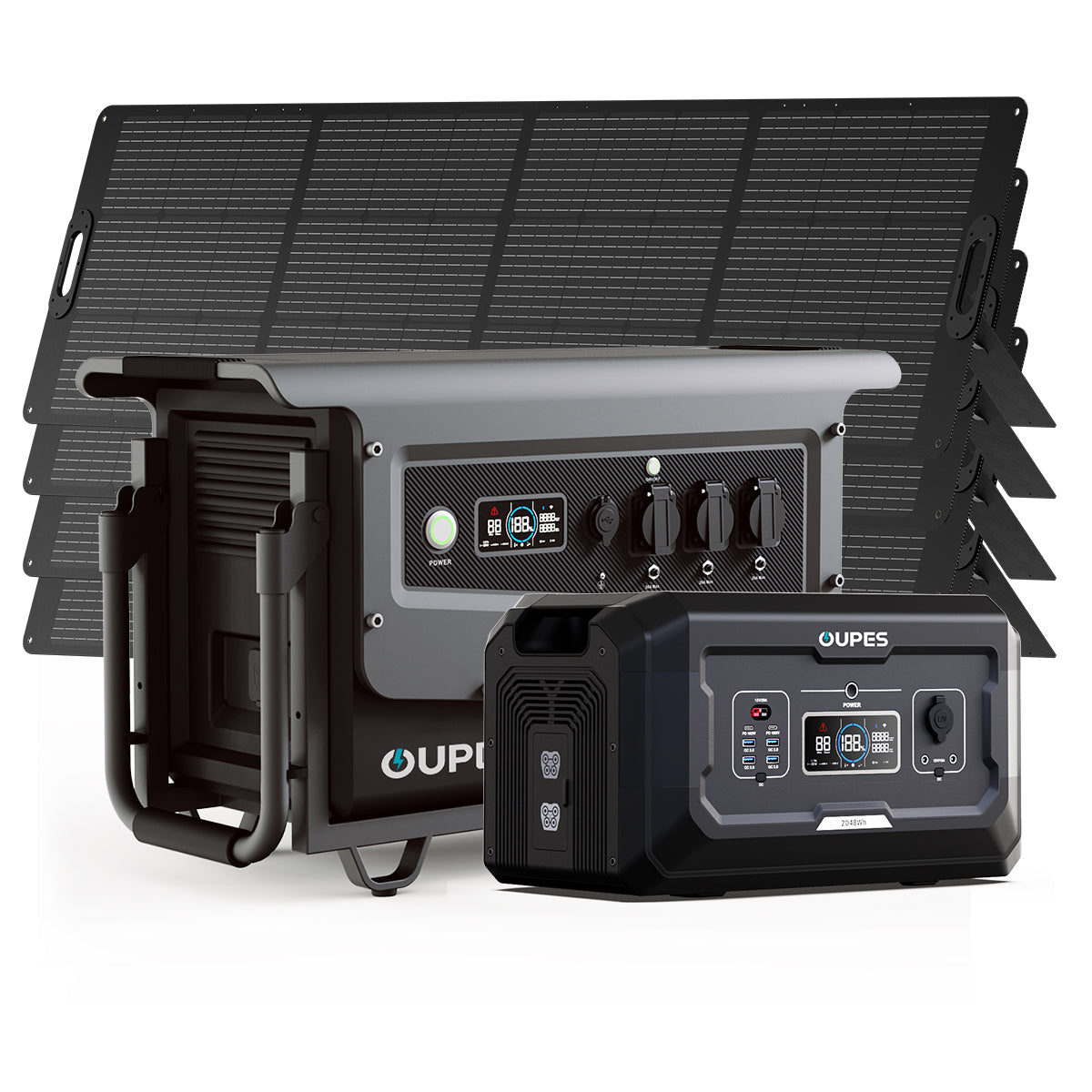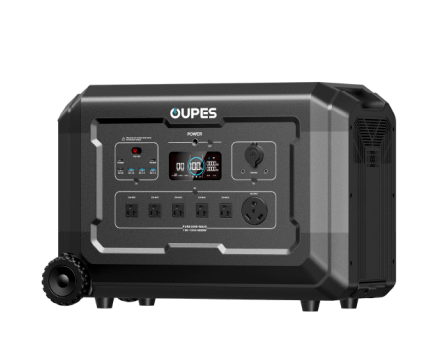
Hurricane season can bring unexpected power outages, leaving households without electricity for hours or even days. Being prepared is key to maintaining safety, comfort, and communication during these events. Proper planning ensures that your family can remain secure and have access to essential supplies until normal conditions return.
This guide will cover critical strategies for emergency preparation during power outages caused by hurricanes. From energy backup solutions and food safety tips to communication strategies and home safety measures, following these tips can help you weather any storm confidently. By taking proactive steps, you can minimize stress and protect your household when the lights go out.
Assessing Your Energy Needs and Backup Options
One of the first steps in emergency preparation is assessing your household??s energy needs. Identify the essential devices that must remain powered during an outage, such as medical equipment, refrigeration for food storage, lighting, and communication devices. Knowing these requirements will help you select an appropriate backup solution.
Portable power stations, such as OUPES solar generators, are an excellent option for maintaining power during outages. They provide reliable electricity to run devices safely without relying on noisy or fuel-dependent generators. Solar panels can be paired with these power stations to extend runtime, offering renewable and sustainable energy during prolonged outages.
When choosing a power station, consider capacity, output types, and recharge options. Calculate the wattage needed for your critical devices and ensure your backup system can meet those demands. For households with higher energy requirements, multiple units or larger-capacity systems may be necessary. By planning your energy backup carefully, you can ensure continuous access to electricity and reduce risks associated with prolonged power loss.
Additionally, understand your generator??s maintenance requirements. Keep batteries charged, inspect solar panels for debris or damage, and ensure all connections are secure. Familiarizing yourself with the operation of your backup power solution beforehand reduces complications during an actual outage, providing peace of mind and reliability when you need it most.
Preparing Essential Supplies and Food Storage
Power outages often disrupt normal food storage and access, making it crucial to prepare emergency supplies. Stock non-perishable foods that do not require refrigeration, such as canned goods, dry grains, and ready-to-eat meals. Keep an adequate supply of drinking water, aiming for at least one gallon per person per day for several days.
For perishable items in refrigerators or freezers, plan ahead with portable power sources to prevent spoilage. OUPES portable power stations can keep refrigerators running for extended periods, preserving food safety. Ice packs, coolers, and insulated containers can also help maintain safe temperatures for critical perishables during outages.
Other essential supplies include flashlights, extra batteries, first aid kits, personal hygiene products, and necessary medications. For households with infants, elderly family members, or pets, ensure that specialized supplies are included. Having these resources readily available can significantly reduce stress and maintain safety during an emergency.
Organize your supplies in accessible locations, clearly labeled and grouped by type or purpose. This organization makes it easier to access essential items quickly during power outages or sudden hurricane events. Rotating supplies periodically ensures freshness, and updating kits to reflect changing household needs keeps your emergency preparedness effective and practical.
Maintaining Communication and Information Flow
During power outages, maintaining communication is critical. Stay informed about weather updates, emergency instructions, and local safety alerts. Battery-powered or hand-crank radios can provide reliable information when cell networks are down. Mobile devices can also be kept charged using backup power stations or portable solar chargers.
Creating a contact list of family members, neighbors, and emergency services ensures that you can reach help when needed. Text messaging may be more reliable than voice calls in congested networks, so establish communication strategies in advance. Sharing your emergency plan with household members and neighbors enhances preparedness and community coordination.
Additionally, consider digital solutions such as solar-powered power banks to maintain phone and tablet charges. Keeping devices operational allows access to maps, news updates, and social media, which can be valuable for real-time information and assistance requests. Planning for communication ensures that you remain connected and informed throughout a hurricane-induced outage.
For households with elderly or vulnerable individuals, maintain a system for regular check-ins. Community coordination, either through phone chains or designated contact points, can help ensure that everyone is safe and has access to essential resources. Staying connected reduces anxiety and supports quicker recovery after the storm passes.
Home Safety Measures During Power Outages
Power outages can pose risks beyond inconvenience, affecting lighting, refrigeration, and security systems. Ensure that flashlights and emergency lights are placed in key areas, including hallways, bathrooms, and bedrooms. Avoid using candles extensively, as they increase the risk of fire, especially in stressful conditions.
Refrigerators and freezers should remain closed as much as possible to preserve cold air. Portable power stations can keep essential appliances operational, reducing spoilage and maintaining safety. Identify backup cooking options that do not rely on electricity, such as portable gas stoves, ensuring that you have fuel and ventilation to operate them safely.
Check that security systems, door locks, and window protections are functional. High winds or storm conditions may compromise home safety, so secure loose items outside and reinforce entry points. If flooding is a concern, prepare sandbags or temporary barriers to reduce water intrusion. Taking proactive measures maintains safety and minimizes damage during outages.
Finally, create a household plan that assigns roles and responsibilities during a power outage. Knowing who handles lighting, food storage, and communication reduces confusion and ensures that critical tasks are completed efficiently. Safety during a hurricane extends beyond energy??being organized and vigilant protects both people and property.
Practical Strategies for Prolonged Outages
In some hurricanes, power may be out for several days or longer. Planning for extended outages requires additional strategies to maintain comfort and survival. Rotate food supplies to avoid spoilage, ration water and energy, and schedule device usage to conserve battery life.
Consider backup sleeping arrangements, especially if areas of your home become unsafe or uncomfortable without electricity. Portable generators and solar-powered devices can be rotated to power essential appliances, providing a manageable supply of electricity over time. For medical needs, prioritize devices that support critical health conditions, ensuring uninterrupted functionality.
Engage in community coordination to share resources and information. Neighbors can assist one another with food, water, and access to backup power if available. Planning for social support enhances resilience during prolonged outages and ensures that everyone in the community remains safer.
Finally, monitor weather updates and recovery efforts to plan your next steps effectively. Stay informed about road conditions, service restoration, and emergency assistance. Being proactive during extended outages reduces anxiety and helps maintain a level of normalcy until full power is restored.
In conclusion, emergency preparation for power outages during hurricane season requires careful attention to energy needs, essential supplies, communication, home safety, and prolonged outage strategies. By combining these elements, households can face power interruptions with confidence and resilience.
Using tools like OUPES portable power stations, stocking essential supplies, and implementing safety measures ensures that your home remains functional and secure. Proper preparation not only protects your family and property but also enhances peace of mind during one of nature??s most challenging events.




























